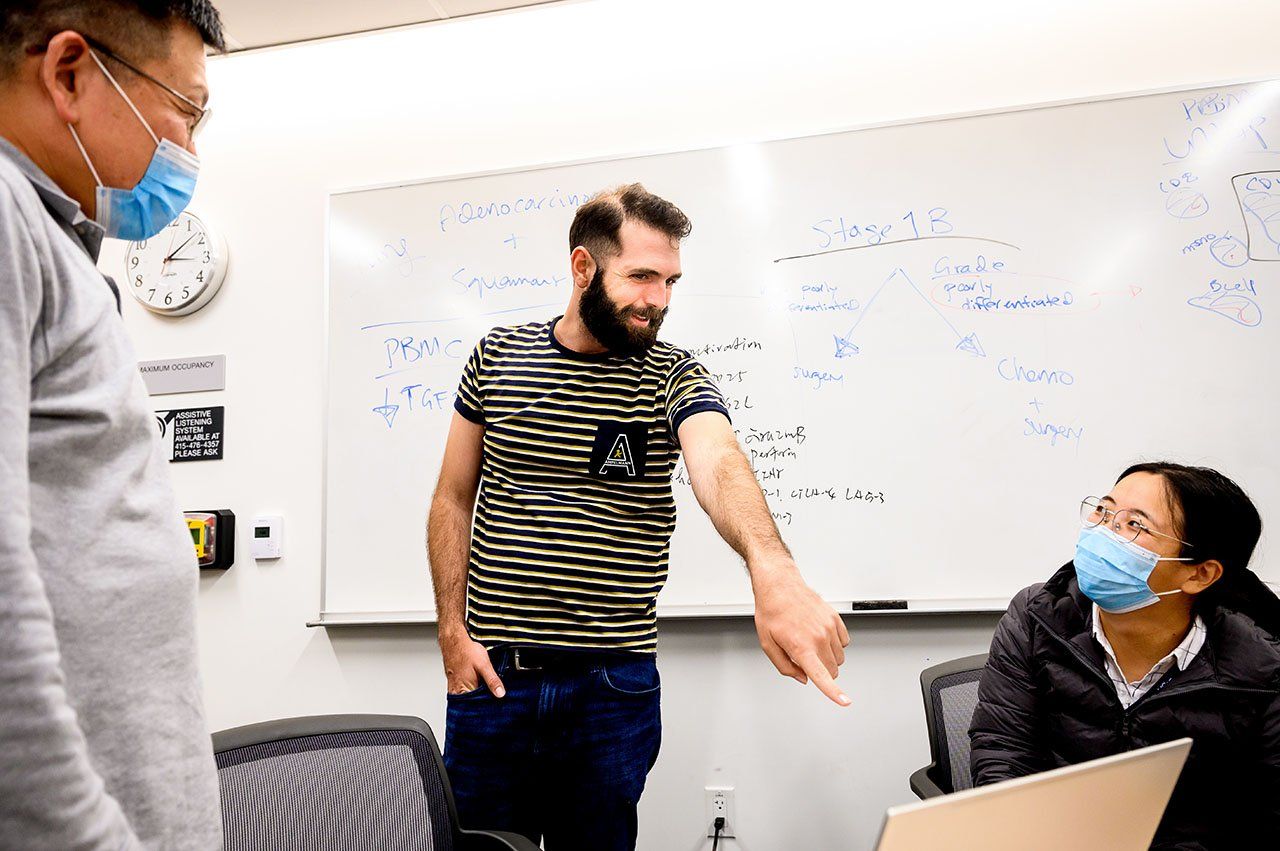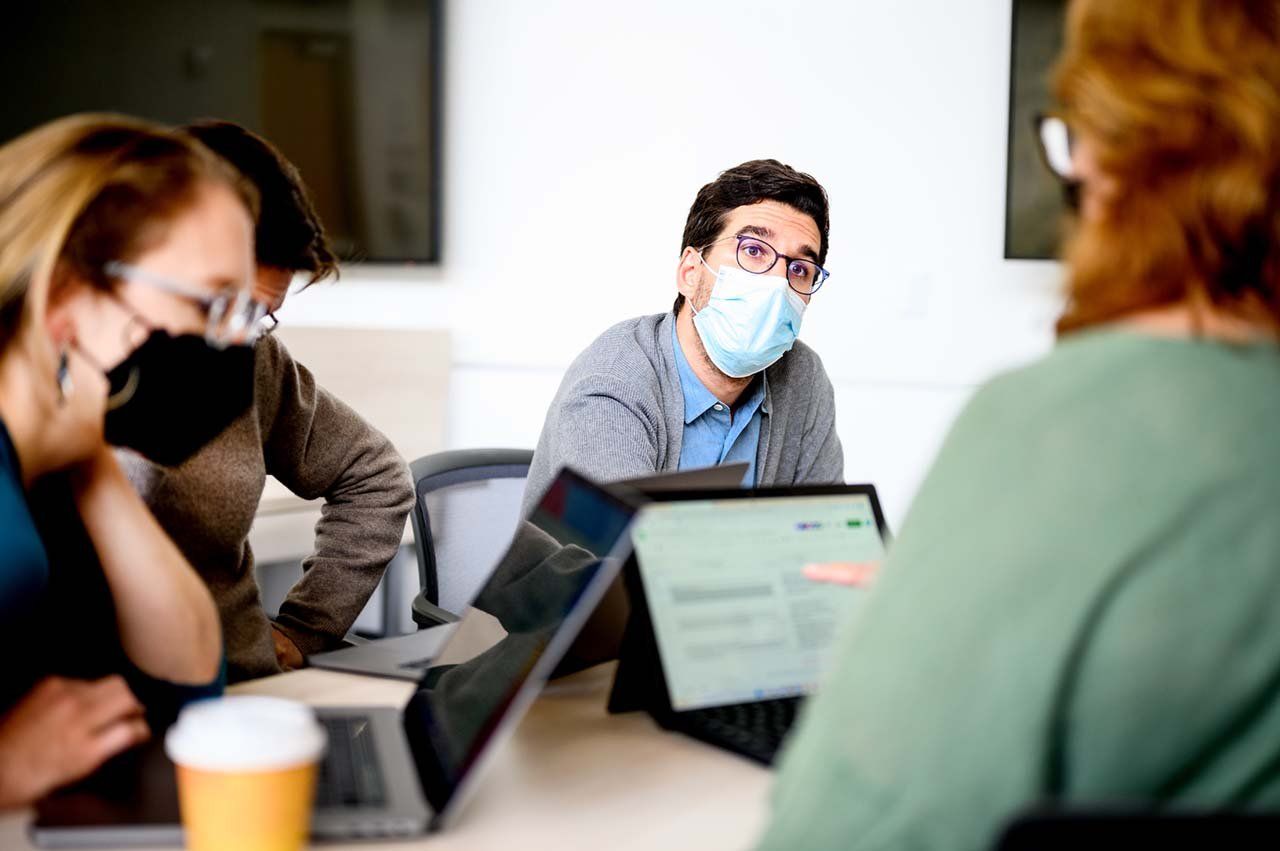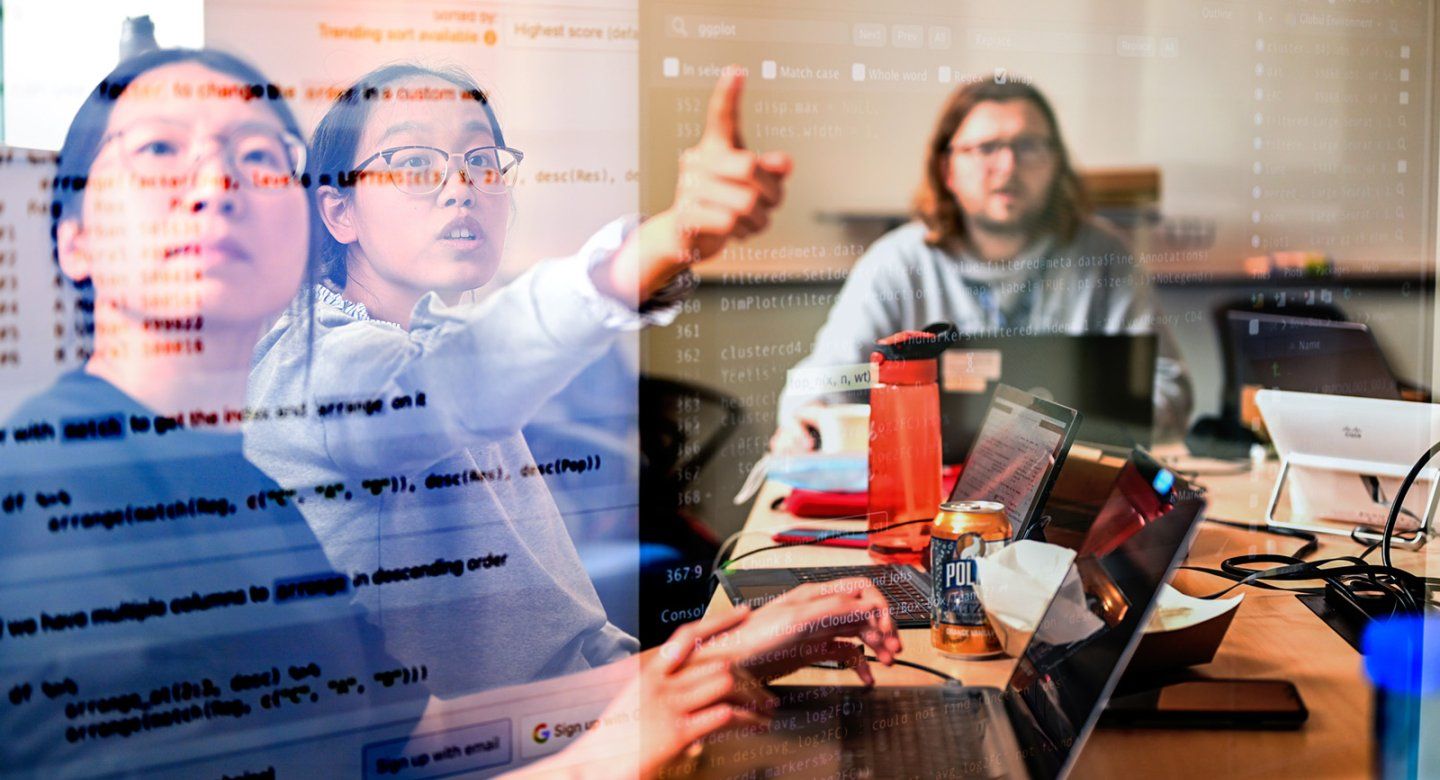Hackathon Prepares Young Researchers for the Collaborative Science of the Future
Bioscience discovery is not a solo pursuit. Confronted with mountains of genomic data, it takes a team of researchers with complementary expertise to glean gemlike insights.
On a sunny Friday, teams of aspiring young scientists gathered in the Clinical Sciences building at Parnassus Heights, looking for treasure in a trillion data points about cancer.
They were competing in a hackathon put on by UC San Francisco’s CoLabs Initiative and the Bakar ImmunoX Initiative, two programs that foster collaborative working across disciplines. Each team was given the same data and two days to make something of it before presenting their ideas to the judges and an audience of their peers.
We asked these students, ‘If you want to understand something new about cancer, what are you going to look for in this data?’
“We asked these students, ‘If you want to understand something new about cancer, what are you going to look for in this data?’” said Max Krummel, PhD, chair of ImmunoX. “This was a chance for them to pursue their own questions, with the potential to find some exciting leads.”
CoLabs has been hosting annual hackathons since 2019. The events draw participants with diverse perspectives, including clinical fellows, postdoctoral researchers, staff scientists and PhD students. The 2020 hackathon, held virtually, gave participants the chance to work with novel information related to COVID-19 from the UCSF COMET study, which tracked patients hospitalized at UCSF and Zuckerberg San Francisco General Hospital and Trauma Center.
This year’s teams got to look at some fresh data, generated by Krummel and colleagues as part of a cross-disciplinary study classifying hundreds of patient-donated tumors by their immune signatures.
Data…Set…Go!
Data scientist Gabi Fragiadakis, PhD, and ImmunoX administrator Jonathan Wilson organized this year’s hackathon, which took place on Aug. 18 and 19. They prepared for the event by dividing the 26 participants into five teams with complimentary skills.
“Bringing biology and data expertise together makes for the best insights and an environment of mutual learning,” said Fragiadakis.
The teams were provided resources on how to use the data analysis tools, which they put to use on the first day of the event, giving participants who were new to number crunching a chance to learn from peers and try their hands.

They looked for patterns in the data, sometimes comparing them with patterns in the tumor data that Krummel and Combes had worked with earlier.
Finally, teams presented the ideas they’d been able to pull together over the previous day and a half. The judges – Combes, Karin Pelka, PhD; Mary Helen Barcellos-Hoff, PhD; and Matt Spitzer, PhD – mulled over the presentations.
“We were really impressed by the amount of work that each team was able to accomplish in such a short time, as well as the diversity of the questions they tried to answer with this rich dataset,” said Combes.
The judges wound up tied on their evaluation of the two top teams’ presentations. The jury was out until Fragiadakis and hackathon trainee volunteers graded the teams on the quality of their computational analysis. In the end, the winning group squeaked out a victory with a project that highlighted differences between lung tumors from smokers and nonsmokers.
Fragiadakis, Krummel, and Combes said the hackathon ideas could offer new insights into cancer treatment and should be followed up.
Many Minds Together Bring Better Results
Beyond furthering research and giving young scientists new skills, the hackathons embody the spirit of CoLabs, which Krummel and Combes see as the future of science.
The CoLabs initiative is both an idea and a dedicated space on the Parnassus campus, designed specifically to make it easier for scientists from different disciplines to work together.
Fragiadakis leads a CoLab that applies data science to immunological problems. Combes directs a CoLab profiling the immune system across a broad array of diseases, and also trains researchers on data analysis techniques. Other CoLabs do cross-disciplinary work focused on imaging, genomics and instrumentation.
“This is the direction things are going,” said Combes. “We see that confirmed in the fact that UCSF is invested in creating the infrastructure for this kind of collaboration.”

Combes and Krummel are enthusiastic about a proposed new research building that will be structured with that ethos in mind, expanding the idea – and the space – of collaboration.
“We want to update the culture of science, to be more engaging and more current,” Krummel said. “This will be a place where the acts of many people together can produce better results, and where we can teach and elaborate a more collaborative culture.”
There’s a shared feeling among the community of faculty in CoLabs that mentorship activities like the hackathon can give students experience that will propel them through their careers.
“It can transform how they work,” he said. “And that’s vital, because at some point they’ll move on to their own labs, and the value of all this information will depend on what they make of it.”
